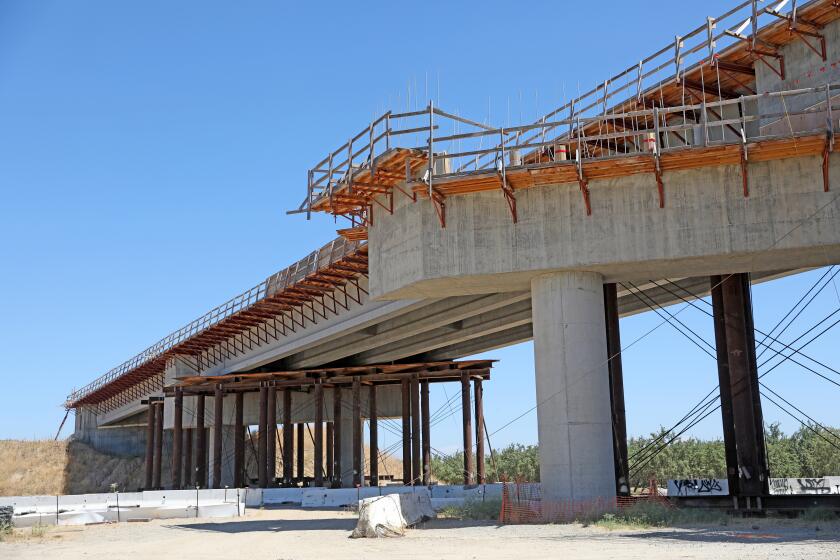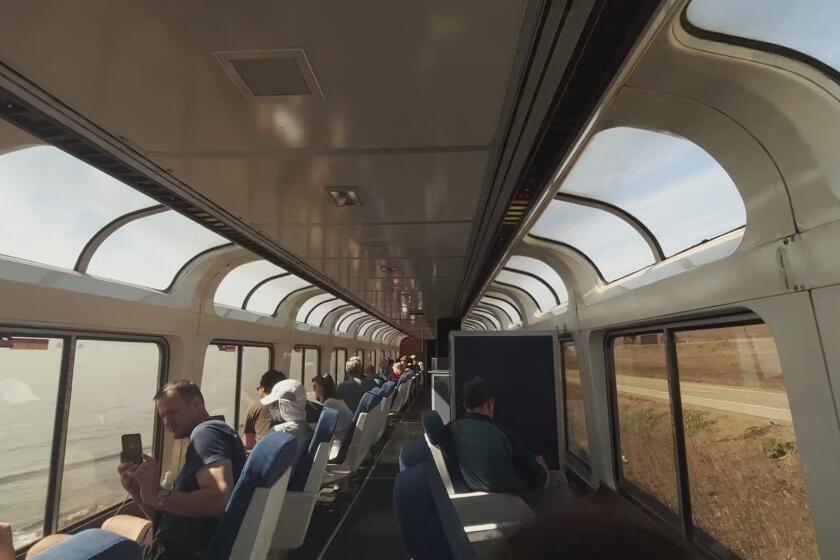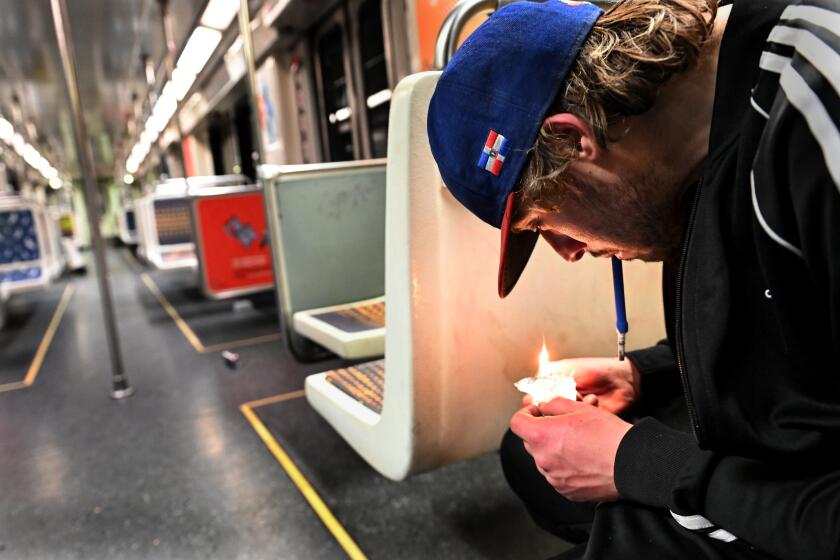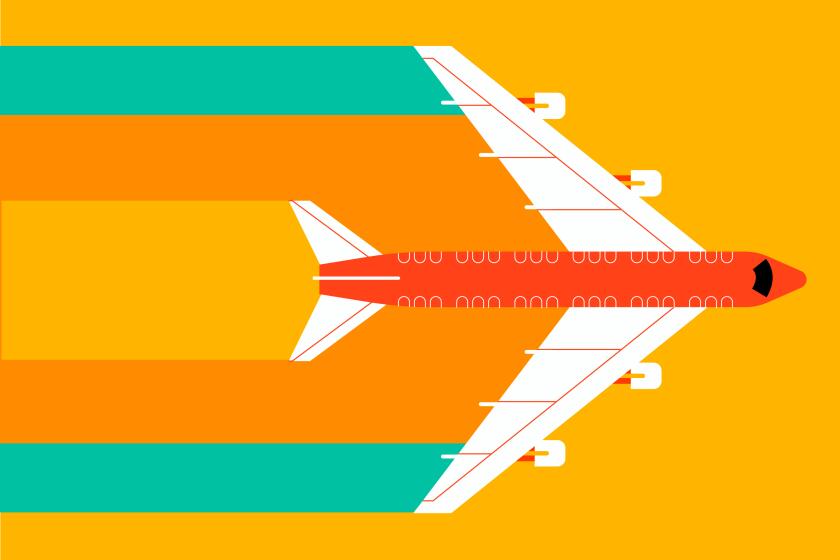The last overnight train between L.A. and S.F. ran in 1968. A startup wants to bring it back
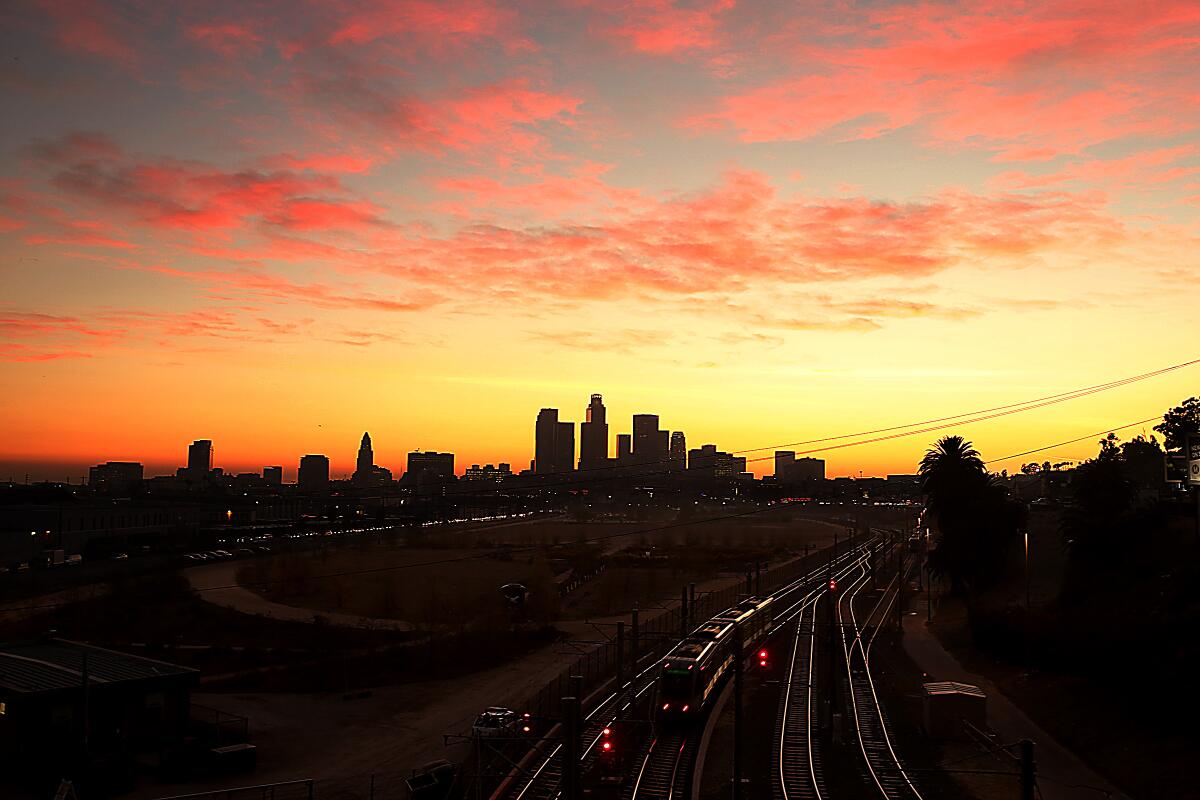
The last time an overnight train connected Los Angeles and San Francisco was 55 years ago.
A Newport Beach-based startup wants to turn back the clock with its version of a âhotel train.â
The luxury overnight train could soon provide a new way to travel between San Francisco and L.A., if Dreamstar Lines Inc. can get its plans approved by California rail lines.
The idea for the privately run night train would function as an almost railway red-eye, but with comfortable accommodations so people could get a full nightâs sleep before waking up at their destination, said Dreamstar CEO Jake Vollebregt. If the small companyâs plan moves forward, he said the new trains could be running by the summer of 2024.
âI think it would represent a renewal of rail,â Vollebregt said. âFor those travelers who have had enough of the security checks and the waiting and the delays [on airlines], weâll be appealing to them.â
The latest report from the California High-Speed Rail Authority projects costs for the initial segment at $35 billion, which exceeds secured funding by $10 billion.
Dreamstar hopes to tap into just a small portion of the massive market for travel between two of Californiaâs largest cities.
Travel between L.A. and San Francisco has become one of the nationâs busiest flight routes, according to recent statistics from OAG Aviation. More than 250,000 airplane seats a month fly between the two cities, OAG data show; Dreamstar plans to provide private rooms for about 65 people per trip â far less than a commercial flight.
Vollebregt said Dreamstarâs service would be âmore like a private jet company than a big airline,â focused on the specialized niche of âupscale, overnight, hotel train service.â Its night trains would travel in each direction, departing around 10 p.m. and arriving the next day around 8 a.m., Vollebregt said.
The five or six sleeping cars would offer three types of private rooms: single roomettes, executive-class double bedrooms or first-class staterooms â the latter two having private bathrooms â and a car for drinks, dessert and continental breakfast, he said. The trains would have multiple stops in both L.A. and San Francisco, startup officials said, and a stop and crew-change point in San Luis Obispo.
One-way tickets would cost about $300, $600 and $1,000, depending on the tier of room, which Vollebregt said is higher than typical airfare, but below other North American sleeper trains.
Perhaps youâve come across this popular train on TikTok, where people rave about its gorgeous observation cars. Hereâs what the ride in coach is really like.
An overnight passenger train â Southern Pacificâs LARK â ran between the two influential California cities for about two decades beginning in the 1940s, but the service ended in 1968. Amtrak in the 1980s began operating an overnight train from Sacramento to L.A. that stopped in Oakland, but it lasted only two years.
Amtrak currently offers a variety of long-distance travel across California during the day, but none direct from San Francisco to Los Angeles. The Coast Starlight connects L.A. to Oakland and Emeryville, while the San Joaquin route goes from the same Bay Area stops to Bakersfield, but requires a separate bus trip to get to L.A.
âFor day trips, travelers have limited options for morning arrivals in either direction or flying up the night before,â Vollebregt said. âWhy not a night train so travelers can sleep and wake up at their destination?â
He said the âgold standardâ for the concept is based on Japanâs well-run railway system, which he called âvery prompt and comfortable and very affordable.â He hopes his team can bring that concept to California, and eventually expand between other metropolitan areas.
But the next step, Vollebregt said, is getting approval and support from necessary stakeholders and railway operators, which includes Union Pacific, which owns most of the Coast Line route the train hopes to use, as well as Metrolink in Southern California and Caltrain closer to San Francisco.
Commuters have abandoned large swaths of a Los Angeles Metro train system plagued by crime and the scourge of drugs.
Officials from both Union Pacific and Metrolink confirmed they are in talks with Dreamstar representatives, but neither has reached any type of agreement yet. It wasnât immediately clear if talks had started with Caltrain.
âThe biggest challenge is getting buy-in from the agencies and the private companies that own the lines and the terminals,â Vollebregt said. He is hopeful to begin services in the summer of 2024, but said âit depends on how quickly our partners are willing to move.â
Scott Johnson, a spokesperson for Metrolink, said Dreamstar representatives had recently âpresented very high-level plans for the proposed service.â
âMore in-depth details and analysis would be needed for the service to move forward,â Johnson said in a statement.
Vollebregt admits there are still a lot of questions about the venture, including how scalable and sustainable it would be as a business, as well as nailing down the physical infrastructure and logistics. But he said Dreamstar has spent years researching the feasibility and is confident in its current plans.
âThis is one of the biggest travel markets in the country, with more than 10 million airline passengers annually and around 40 million total travelers,â Vollebregt said. âA night train would be sustainable with less than a quarter of a percentage point of market share, which would support ridership well above that.â
Readers share their 2023 destination wish lists, a âvacation anticipationâ resolution and a fond farewell.
More to Read
Sign up for Essential California
The most important California stories and recommendations in your inbox every morning.
You may occasionally receive promotional content from the Los Angeles Times.
